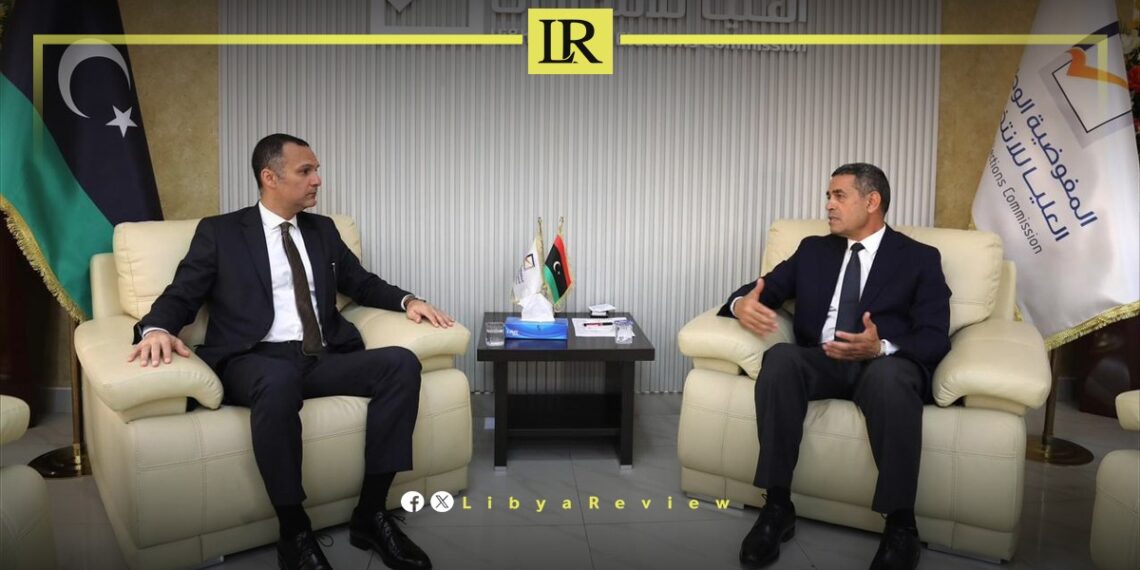Head of the High National Elections Commission (HNEC), Emad Al-Sayeh, met today with the Egyptian Ambassador to Libya, Tamer El-Hefny, and his accompanying delegation at the HNEC headquarters in the capital, Tripoli.
During the meeting, both parties discussed ways to support the electoral process in Libya and assessed the commission’s readiness for the upcoming elections. Ambassador El-Hefny expressed his appreciation for the efforts made by the commission in preparing for the municipal council elections.
This meeting underscores the ongoing collaboration between Libya and Egypt to ensure the successful execution of the electoral process, reflecting the shared commitment to enhancing democratic practices and stability in the region.
On Monday, the head of the High National Election Commission (HNEC), Emad Al-Sayeh, welcomed Stephanie Khoury, Deputy Special Representative of the UN Secretary-General, along with her delegation, at the HNEC headquarters. This visit marks Khoury’s first to Libya in her new capacity.
During their meeting, they examined the positions of political stakeholders on the electoral process, with a particular focus on the municipal council elections. These elections are critical for the governance and stability of local communities in Libya.
The discussion also highlighted the crucial role of the executive authority in supporting the HNEC. This support includes providing financial resources and ensuring security, both of which are essential for the successful conduct of the municipal council elections.
Additionally, they addressed the challenges faced by the support project managed by the United Nations Development Programme (UNDP) in Libya. The conversation emphasized the need for urgent decisions to advance the project, which is designed to bolster the municipal electoral process.
Libya is at a pivotal moment in its journey toward political stability and democratic governance. Following years of conflict and division, the country is working to rebuild its political institutions through a series of elections, including those for municipal councils. These local elections are vital as they lay the foundation for decentralized governance, allowing local authorities to address community-specific issues more effectively.


